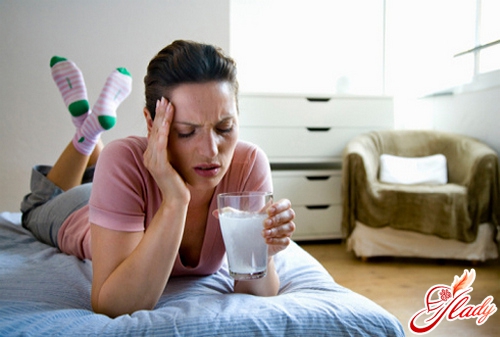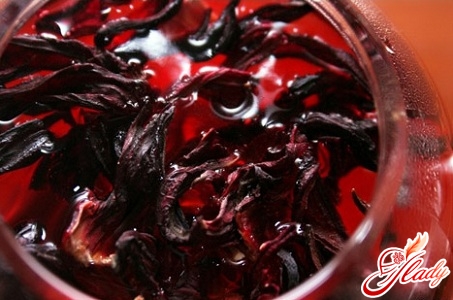 Food poisoning is something I encounter every daya huge number of people. This problem is especially relevant in the summer, when the air temperature is quite high and food spoils much faster. In addition, an increased surge in food poisoning occurs on holidays: New Year, March 8, May holidays. Therefore, everyone should know about food poisoning, symptoms, treatment. After all, if a person has food poisoning, it is advisable to start treatment as early as possible. This, in principle, is easily explained. As a rule, on the eve of the holiday, products are bought for future use, and sometimes in the rush they are forgotten even just to put them in the refrigerator. And the leftovers from the holiday table are sometimes eaten up for several days. People feel sorry to throw away still good, in their opinion, products. However, very often people have to pay for such "thriftiness" with their health. Some time after eating stale food, a person develops digestive disorders such as nausea, diarrhea, vomiting, which indicate the presence of food poisoning.
Food poisoning is something I encounter every daya huge number of people. This problem is especially relevant in the summer, when the air temperature is quite high and food spoils much faster. In addition, an increased surge in food poisoning occurs on holidays: New Year, March 8, May holidays. Therefore, everyone should know about food poisoning, symptoms, treatment. After all, if a person has food poisoning, it is advisable to start treatment as early as possible. This, in principle, is easily explained. As a rule, on the eve of the holiday, products are bought for future use, and sometimes in the rush they are forgotten even just to put them in the refrigerator. And the leftovers from the holiday table are sometimes eaten up for several days. People feel sorry to throw away still good, in their opinion, products. However, very often people have to pay for such "thriftiness" with their health. Some time after eating stale food, a person develops digestive disorders such as nausea, diarrhea, vomiting, which indicate the presence of food poisoning.
Varieties of food poisoning
To poisoning of the human body in most casescases is caused by the presence of toxins, their waste products and decay in food products. Bacteria enter food products as a result of a violation of the technology of their production process and, which is much more common, storage conditions. Also, very often pathogenic microorganisms enter the water, and only then - the human body. Many people try to determine the suitability of products by their appearance or smell. However, products containing microbes do not always change their taste, color, smell or consistency. And as a result, low-quality products are consumed.
- Food Poisoning
In principle, any meat product can becomesource of poisoning. However, chicken meat is the most dangerous, as salmonella bacteria live in large quantities on the skin of chickens. Minced meat products are also often the cause of poisoning. To prevent this type of poisoning, always thoroughly heat-treat meat products and do not store meat outside the refrigerator. Try to eat ready-made meat dishes within the first day after preparation.
- Staphylococcus toxin poisoning
This type of food poisoning is,perhaps the most common. Staphylococcus aureus reproduces remarkably well even at room temperature, usually on such products as pates, cream cakes, and dairy products. Such food poisonings are especially common in the summer, due to the high ambient air temperature.
- Food poisoning with mushrooms
Mushroom poisoning is the most dangerousof the human body. With this type of poisoning, the liver and kidneys are significantly affected, as well as the central nervous system. If mushroom poisoning is suspected, a person must be taken to the hospital as quickly as possible. To avoid mushroom poisoning, never pick unfamiliar mushrooms or mushrooms growing near the road.
- Food Poisoning by Fish
Fish poisoning is the second most common cause ofseverity, after mushroom poisoning. Fish in the process of decomposition releases highly toxic substances that have an extremely negative effect on the central nervous system and the human body as a whole. Always be very careful when buying fish. And never store fish at room temperature - it begins to spoil after just half an hour.
- Botulism
Botulism is one of the most common diseases today.the most severe poisonings, posing a serious danger to the human body. As a rule, the first signs of the disease can appear within an hour after eating poor-quality food, but in rare cases, several days pass between eating and the onset of the disease. The causative agent of this disease is the spores of the botulinum bacillus. Reproduction of these spores is possible only in an oxygen-free space. As a rule, canned food, home-made preserves, and also in the lower layers of meat products are ideal for reproduction. Regular boiling is ineffective in the fight against botulism - spores are very viable and die only at temperatures above 150 degrees Celsius. The symptoms of botulism are very specific, and it is difficult to confuse them with ordinary food poisoning. As already mentioned, a short time after eating a poor-quality contaminated product, a sick person experiences a sharp cutting pain in the stomach. Almost immediately, a person experiences incessant, debilitating vomiting. After about two to three hours, the sick person notices a significant deterioration in vision, as if a veil or fog falls over the eyes. After another hour or an hour and a half, the sick person begins to salivate, the swallowing process is impaired, and speech is lost. Gradually, paralysis of all other muscles develops, including those involved in the breathing process. If the sick person is not provided with immediate and qualified assistance, the risk of death is very high. In this case, only a doctor can provide assistance to the sick person! Immediately call an ambulance team, which will take the patient to the infectious diseases department of the nearest hospital, where first aid will be provided. Self-treatment is impossible, since the only effective remedy is the introduction of antibotulinum serum. Remember that the chances of a favorable outcome of the disease decrease with each hour. The only thing you can do before the ambulance arrives is to wash the patient's stomach. This measure will help reduce the number of spores absorbed into the blood and entering the patient's intestines. How to properly flush the stomach will be discussed below.
- Other food poisoning
Much less often, but still sometimes together withSpoiled and poor-quality products introduce pathogenic microorganisms such as pathogens of dysentery, salmonellosis and even typhoid fever into the human body.
Symptoms of food poisoning
Incubation (latent) period of the diseasecan last from several hours to several days. As a rule, it depends on what kind of microbes were in the products, as well as their quantity. The first sensations are usually pain in the stomach, and after some time diarrhea may join in, but not always. Sometimes poisoning can occur without diarrhea, but not often. After several hours, the poisoned person develops a headache, chills. Very often, when a person has food poisoning, the temperature rises to quite high numbers, there is aching in the bones and muscle pain. In case of severe poisoning, confusion, delirium and even fainting are possible.
The first first aid for food poisoning
Unfortunately, quite often simple foodpoisoning leads to severe intoxication of the body, disruption of the normal functioning of the kidneys, liver, pancreas. And this most often happens because a person does not know what to do in case of food poisoning. Timely emergency care for food poisoning can often save not only a person's health, but also his life. If you or a loved one has the above symptoms of food poisoning, you must call an ambulance. But even before they arrive, you need to start providing first aid to the victim. To begin with, be sure to rinse the sick person's stomach. Many sources of information advise rinsing the stomach with a weak solution of potassium permanganate. But, unfortunately, even a small, undissolved crystal can cause a serious burn of the mucous membranes of the mouth, esophagus and stomach. It is much safer and no less effective to rinse the stomach with a solution of soda and iodine. To prepare it, dissolve soda and iodine in water at the rate of two tablespoons of soda and five drops of iodine per liter of warm boiled water. Let the patient drink as much of the solution as he can, then press on the root of the tongue to induce vomiting. It is necessary to wash the stomach until the vomit becomes transparent and clean - in other words, until only water remains. Please note that there are several categories of people for whom gastric lavage is strictly prohibited:
- People who are unconscious.Firstly, they cannot drink water, and secondly, there is a high risk of asphyxia – that is, choking. Moreover, if an unconscious person starts vomiting, which often happens if a person has acute food poisoning, be sure to always make sure that his head is tilted to the side – this will help to avoid suffocation.
- People who are confused.Strictly speaking, you can't wash out the stomach for the same reasons as for unconscious people. Even if a person seems to come to his senses periodically, the risk of choking is still quite high.
- Children under two years of age.In no case should you wash out the stomach of a child on your own. There are two reasons for this: you are unlikely to be able to persuade the little one to drink this rather unpleasant-tasting solution. But even if you do manage to say it, you will be in serious danger. The fact is that in such children, irritation of the root of the tongue and vomiting can provoke sudden spontaneous cardiac arrest.
- For people who have suffered heart attacks and strokes.The reason why gastric lavage is contraindicated is the same as in children. The gag reflex puts a significant strain on the cardiovascular system of the body. And the patient's condition can significantly worsen.
After gastric lavage, give immediatelyany laxative for the sick person, if you have one at hand. If there is nothing suitable in the home medicine cabinet, give the sick person a few spoons of regular vegetable oil - it has an excellent laxative effect. However, please note - a laxative should only be given if the sick person does not have diarrhea. If there is diarrhea, give the sick person activated charcoal, at the rate of one tablet for every five kilograms of a person's weight. After you have done the above procedures, try to warm the sick person by wrapping him up or applying a heating pad to his feet - as a rule, the blood vessels of the extremities spasm and the feet freeze the most. Be sure to offer the patient warm tea or milk. By the way, milk is very useful if there is food poisoning - keep this in mind. Do not give any medications to the sick person on your own, except for activated charcoal and a laxative - if a person has food poisoning, treatment can only be prescribed by a doctor - an infectious disease specialist.
Antibiotics
Very often people prescribe themselves and starttake antibiotics for food poisoning. However, this is absolutely forbidden! Most often, taking antibiotics does not affect the pathogen in any way. But the antibiotic still places a huge burden on the kidneys and liver. And they have a lot of work to do without the antibiotic - to remove all the toxins from the human body. So is it worth additionally burdening the body, which is already having a hard time? And, in addition, the use of antibiotics greatly changes the normal intestinal microflora, making it unable to fight toxins that have entered the body with poor-quality food. Then, in order to restore the normal natural balance of microflora, you will have to make a lot of effort and spend quite a long time. Although in some cases of intestinal infections it is impossible to get around without antibiotics. However, the doctor will prescribe the necessary tests. And only if the tests show the presence of those microorganisms in the body that are sensitive to the antibiotic, the doctor will prescribe the medicine.
Diet during illness
After the crisis had passed and the patienta person begins to recover, a diet after food poisoning is extremely important. On the first day, it is advisable for a sick person to completely refuse to eat food, leaving only the consumption of liquids. On the second day, if vomiting has stopped, a sick person can begin to eat broths, crackers. On the third day, liquid porridges and soups should be included in the diet. The first days, all food should be viscous or mashed. In no case should you ignore nutrition in case of food poisoning, because otherwise serious complications may develop. These include various disorders of the normal functioning of the digestive and excretory systems.
Poisoning in children
It is necessary to talk separately about poisoningchildren. Children very often put toys, dirty hands, etc. in their mouths. That is why intestinal infections in children are not such a rare occurrence. However, poisoning in children is much more severe than in adults. And therefore, food poisoning in children requires much closer attention from adults. Take urgent measures as soon as you notice the first signs of food poisoning in your baby. Do not try to diagnose it yourself. Diarrhea and vomiting in children can accompany many diseases, so only a pediatrician can diagnose poisoning. Very often, parents mistake the most common dysbacteriosis for poisoning. Therefore, at the first signs of malaise, immediately call a doctor or an ambulance. In case of poisoning in a baby, the treatment tactics should be slightly different. Firstly, a small child must go to bed at the first signs of illness and stay in bed. Children have a very high risk of dehydration, so losing moisture through sweat is highly undesirable. Also, be sure to control the temperature in the room - the air should not be too cool or too warm. Then you need to immediately start giving the baby something to drink. To give the baby something to drink, you can use a solution of rehydron or regular glucose, which should always be in any home where there is a child. If they are suddenly not available, you can give the baby compotes or fruit drinks, or regular water. It is highly recommended not to use mineral water to give the baby something to drink - this will cause additional stress on the baby's kidneys, due to the salts it contains. You need to give the baby something to drink in the following way. About every 15 minutes, the baby should drink about three teaspoons of liquid. If the child begins to vomit, try giving two or one teaspoon, reducing the time between doses to five minutes. But even if the baby asks to drink, do not give more - otherwise the liquid will not be absorbed by the intestines and the desired effect will not be achieved. If the baby has food poisoning with a high temperature, parents can give the baby a children's antipyretic. However, remember that doctors do not recommend bringing down temperatures below 38.5 degrees with medication. If it bothers you a lot, try bringing it down with folk methods - cool wraps, rubbing. Most often, the baby refuses to eat. On the first day of the disease, this is absolutely normal and should not cause concern for parents. But on the second day, the baby can already begin to feed. However, the diet for food poisoning in children should be especially strict:
- Volume of food.In the first day after the illness, the volume of food consumed must be reduced by at least half. In addition, meals should be fractional - the child should be given food in very small portions, but often. The break between meals for the baby should be no more than two hours. The next day, approximately ten percent should be added to the volume. You need to continue adding until you restore the previous volume of food that the baby ate before the illness.
- Food consistency.During illness and recovery, the baby should never eat fatty, fried or spicy foods. The food should be either liquid or viscous. Porridge on water or soups on chicken broth are ideal. Do not give the baby milk - it is better to replace it with kefir or yogurts during the first week. It is necessary to gradually transfer the child to his usual food, gradually introducing food products into the diet. And be sure to consult with your pediatrician in advance about what your baby should eat in case of food poisoning.

Folk methods of poisoning treatment
In the event that the poisoning is not severe, butthe patient's condition is satisfactory, the patient is not hospitalized, but is prescribed treatment at home. Simple folk remedies that have been helping hundreds of people for decades are very effective in such cases. Folk remedies for food poisoning are simple, and the result is effective. The most effective recipes of folk medicine are described below. However, it is necessary to remind once again that self-treatment is possible only in case of mild poisoning, and only after examination of the patient by a doctor.
Remember also that in order for toxins to beas quickly as possible leave the body, a sick person should drink as much liquid as possible. And, in addition, such a measure will help prevent dehydration. Doctors recommend drinking either ordinary mineral water, to which you can add lemon juice, or rosehip broth, or various fruit drinks. Despite the fact that during illness a person does not feel so good, doctors recommend that patients move as much as possible. This is explained very simply - during movement a person sweats, and together with sweat, toxins quickly leave the human body through the pores of the skin. A sauna or bath has approximately the same effect.
Prevention of food poisoning
Of course, it is very important to pay significant attentionattention to such an important issue as the prevention of food poisoning. Following a few simple rules will reduce the risk of food poisoning by 67%. These rules are described below:
- Compliance with hygiene rules.Always wash your hands thoroughly with soap before you start preparing food. Also, pay close attention to the cleanliness of all the dishes in which you prepare food, as well as cutlery.
- Defrosting meat.The most common mistake of many housewives is slow defrosting of meat and semi-finished meat products at room temperature. While the meat is still frozen inside, pathogenic microorganisms begin to actively multiply on its surface. Meat should be defrosted either in the refrigerator, outside the freezer, or in a microwave oven. Meat must be thoroughly heat treated during cooking. It is highly recommended not to eat poorly cooked meat with blood.
- Eating raw eggs.Many people prefer to eat eggs raw, believing that they are more beneficial this way. However, in this case, the risk of salmonella infection is very high. Moreover, even before cooking eggs, their shells must be washed.
- Consumption of products that are outside therefrigerator. Never eat meat or dairy products that have been out of the refrigerator for more than two hours. Remember that even if the taste or appearance of the products has not changed, they may be spoiled and pose a threat to human health.
- Consumption of food products manufactured inunsanitary conditions. Who among people does not at least periodically buy a pie or a hot dog in small shops and market stalls. But when buying such products, a person is exposed to the risk of food poisoning. After all, no one knows from what products and in what conditions this food is prepared. Try to avoid such "snacks". It will be much healthier to eat an apple taken from home in advance. If hunger still prevails over common sense, give preference to products that do not contain meat. For example, buy a bun with raisins. As a rule, it is meat that most often causes food poisoning.
As mentioned above, food poisoning andintestinal infections are very similar in their symptomatic signs. Unfortunately, it is simply impossible to determine on your own what caused the disease. Moreover, even the most experienced doctor will never take on such responsibility as making a diagnosis without conducting a series of tests that will reveal the cause of the disease. And the doctor will prescribe appropriate adequate treatment. That is why you should never ignore the need to seek medical help. After all, the sooner measures are taken in case of food poisoning, the less damage will be done to the body. Thus, you can avoid a huge number of complications! We recommend reading:









